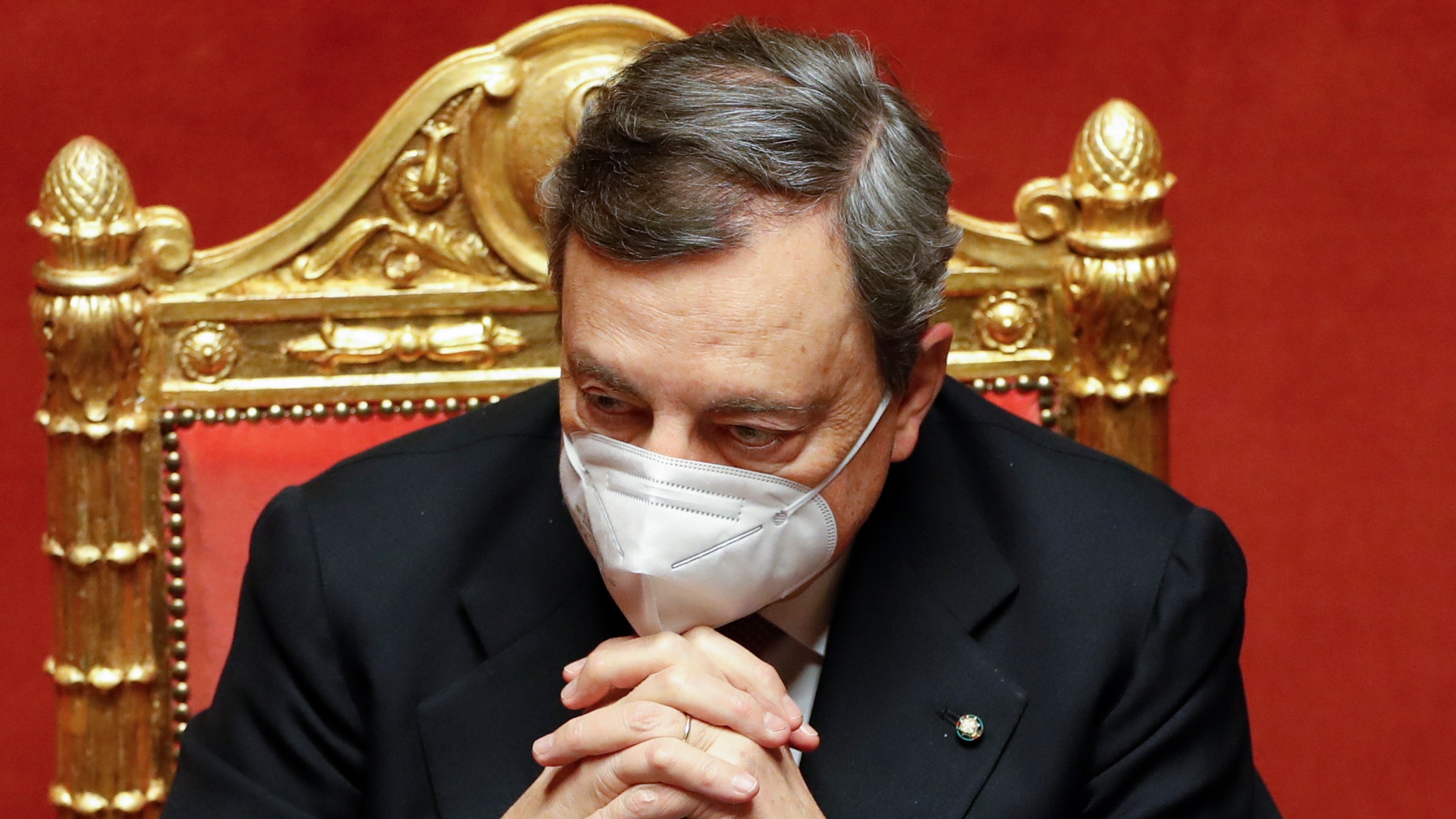Who will become Italy’s next president?
Secret ballot begins as Silvio Berlusconi drops out of race

A free daily email with the biggest news stories of the day – and the best features from TheWeek.com
You are now subscribed
Your newsletter sign-up was successful
Italian parliamentarians have today begun casting their votes for a new president in what pundits have described as “one of the most consequential political decisions of 2022”.
More than 1,000 lawmakers and regional delegates will participate in the secret ballot to elect a successor to Sergio Mattarella, whose seven-year mandate concludes in February.
Italy’s president is a largely ceremonial role, but does have the power to intervene in political crises, select prime ministers, call early elections and approve or veto laws.
The Week
Escape your echo chamber. Get the facts behind the news, plus analysis from multiple perspectives.

Sign up for The Week's Free Newsletters
From our morning news briefing to a weekly Good News Newsletter, get the best of The Week delivered directly to your inbox.
From our morning news briefing to a weekly Good News Newsletter, get the best of The Week delivered directly to your inbox.
1. Why it matters
“As the EU’s third-largest economy, what happens in Italy matters”, said Politico’s Brussels Playbook.
Given the amount of power wielded by the Italian president, the election “could herald the end of the national unity government and unsettle investors betting on a continued economic recovery”, said the Financial Times (FT).
The president is selected by a total of 1,009 electors, from the Senate and the Chamber of Deputies, as well as 58 regional representatives. In the first three rounds of voting, electors post a secret ballot, and a candidate needs to secure a two-thirds majority to win. Should voting reach the fourth round, only an absolute majority is required.
2. What can the president do?
Although the role is largely ceremonial, the president’s “formal powers include appointing the prime minister and other members of the government”, said the FT.
A free daily email with the biggest news stories of the day – and the best features from TheWeek.com
“The head of state also plays a big behind-the-scenes role in ensuring stability and respect for Italy’s EU and international obligations.”
And following “a succession of political crises, the role of the president of the republic has become increasingly important”, said EUobserver.
“Presidents of the immediate post-war period had a lower profile, the leading role was played by the political forces," Marco Follini, who served as deputy PM under Silvio Berlusconi, told the site. But “over time, the function of the president has become more and more crucial”.
This shift is “partly because presidents have chosen to interpret their mandate in a way that is not merely notary-like”, Follini continued.
“And partly, and most importantly, I would say, because the parties that dominated the political arena until a few years ago have lost much of their influence.”
3. Who is in the running?
The favourite to win the presidency is the current PM, Mario Draghi, who was called upon to form a government of national unity last February after the center-left coalition led by Giuseppe Conte collapsed.
Former European Central Bank president Draghi signalled earlier this month that he would be willing to become head of state, saying his unity government had already completed much of its agenda. “We have created the conditions for the work to continue, regardless of who is there,” the 74-year-old told a press conference.
Draghi “has widely been credited with restoring stability to Italy” and “is in pole position for the role” of president, said Politico.
But removing him as PM “would be seen as deeply unsettling”, in part because he “is responsible for managing Italy’s colossal €200bn slice of the EU’s €800bn recovery fund”, the site added.
His openness to stepping down as PM and becoming head of state has presented lawmakers with a “dilemma”, the Financial Times said, namely whether to “retain their country’s most celebrated technocrat as prime minister” or “elevate him to head of state, potentially triggering a paralysing crisis over a successor to head the government”.
Draghi has successfully “galvanised cross-party support for the EU recovery plan, steered a first batch of reforms through parliament and started to cut through Italy’s bureaucratic thicket”, the paper added. But “reform momentum and fiscal discipline could falter without his hands-on leadership”.
Ex-premier Silvio Berlusconi, who is infamous for a string of controversies, had said he was willing to become president and had the backing of the country’s centre-right. But he dramatically quit the race “amid reports of the former prime minister’s growing health problems”, The Times said.
Berlusconi claimed over the weekend that “he had enough backing from the 1,009 MPs and regional politicians due to elect a new president this week”, but stood down citing a sense of “national responsibility”.
It was then reported this morning that “Berlusconi had checked into hospital for the latest in a series of check-ups” after “he suffered a tough bout of Covid in 2020 following heart surgery in 2016”, the paper added.
The other tipped potential candidates are less well known outside of Italy. The possibles include former Christian Democrat president of the Chamber of Deputies Pier Ferdinando Casini; European Commissioner for the Economy Paolo Gentiloni; and former PM Giuliano Amato, an 83-year-old Europhile who helped draft the European Constitution.